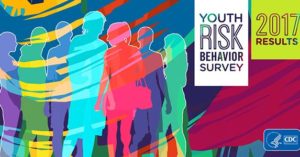Adolescent Suicide Rate Hits 20-Year High
 Recent research published in the Journal of the American Medical Association indicates the suicide rate for teens ages 15 to 19 is at its highest point in 20 years, and that suicide is now the second-leading cause of death for that age group. Read more ›
Recent research published in the Journal of the American Medical Association indicates the suicide rate for teens ages 15 to 19 is at its highest point in 20 years, and that suicide is now the second-leading cause of death for that age group. Read more ›


 Although some fears and worries are typical in children, persistent or extreme forms of fear and sadness could be due to anxiety or depression.
Although some fears and worries are typical in children, persistent or extreme forms of fear and sadness could be due to anxiety or depression. 
 When their child is diagnosed with ADHD, parents often have concerns about deciding the best way to help their child. It is important for parents to remember that ADHD can be successfully managed. There are many treatment options, so parents should work closely with everyone involved in the child’s life—healthcare providers, therapists, teachers, coaches, and other family members. Taking advantage of all the resources available will help parents guide their child towards success.
When their child is diagnosed with ADHD, parents often have concerns about deciding the best way to help their child. It is important for parents to remember that ADHD can be successfully managed. There are many treatment options, so parents should work closely with everyone involved in the child’s life—healthcare providers, therapists, teachers, coaches, and other family members. Taking advantage of all the resources available will help parents guide their child towards success. 
 Deciding if a child has ADHD is a process with several steps. There is no single test to diagnose ADHD, and many other problems, like anxiety, depression, sleep problems, and certain types of learning disabilities, can have similar symptoms.
Deciding if a child has ADHD is a process with several steps. There is no single test to diagnose ADHD, and many other problems, like anxiety, depression, sleep problems, and certain types of learning disabilities, can have similar symptoms.
 A substantial percentage of students with ADHD symptoms severe enough to affect them both academically and socially are not getting any support in school for the disorder, says a new study based on the experiences of nearly 2,500 children and youth.
A substantial percentage of students with ADHD symptoms severe enough to affect them both academically and socially are not getting any support in school for the disorder, says a new study based on the experiences of nearly 2,500 children and youth. 
 From birth to 5 years, children should reach milestones in how they play, learn, speak, act and move.
From birth to 5 years, children should reach milestones in how they play, learn, speak, act and move.
 One in seven high school students reported misusing prescription opioids, one of
One in seven high school students reported misusing prescription opioids, one of 
 The CDC’s
The CDC’s 

